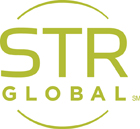STR Global releases market performance for Thailand
 Data from STR Global, the leading provider of market information to the global hotel industry, highlights the plight of local markets in Thailand and puts the effect of the country’s recent political disruption into a regional context.The ongoing political unrest in Bangkok has affected the country’s hospitality industry, which already has to deal with worsening global economic conditions. Over the five months from November 2008 to March 2009, the four Thai markets tracked by STR Global have reported monthly declines of more than 30 percent in revenue per available room (RevPAR) against the comparable period the previous year. The falls in RevPAR were driven by declining occupancy levels that were not matched by similar declines in average room rates. “It is reassuring to see that average room rates declined significantly less than occupancy, and RevPAR should be able to start improving as soon as occupancy and travel demand recovers”, explained Singapore-based Jonas Ogren, area director Asia for STR Global.
Data from STR Global, the leading provider of market information to the global hotel industry, highlights the plight of local markets in Thailand and puts the effect of the country’s recent political disruption into a regional context.The ongoing political unrest in Bangkok has affected the country’s hospitality industry, which already has to deal with worsening global economic conditions. Over the five months from November 2008 to March 2009, the four Thai markets tracked by STR Global have reported monthly declines of more than 30 percent in revenue per available room (RevPAR) against the comparable period the previous year. The falls in RevPAR were driven by declining occupancy levels that were not matched by similar declines in average room rates. “It is reassuring to see that average room rates declined significantly less than occupancy, and RevPAR should be able to start improving as soon as occupancy and travel demand recovers”, explained Singapore-based Jonas Ogren, area director Asia for STR Global.
The political unrest of November 2008, which flared up again most recently in April 2009, has not directly impacted tourists, but the airport closures during November’s protests and foreign governments’ travel advisories have made visitors more wary of the destination. “Security is a main concern of travelers, and the recent media coverage of violent protests will deter many business and leisure guests contemplating travel to Thailand”, said James Chappell, managing director of STR Global.
The market reaction has been swift. Demand in Bangkok in the middle of April has rapidly fallen by more than half of that of the previous year, down to as little as 33 percent on certain days. Despite such low occupancies, hoteliers are holding their rates as best they can with year on year declines of 4 percent and an average rate of THB 3,323 for the first three weeks of April. The result of this relative firmness in rate is that the city’s RevPAR decline remains similar to that for the November-to-March period.
However, taking a longer-term perspective data from STR Global shows that Thailand has been underperforming the southeast Asian market as a whole since September 2006, the time of the most recent military coup. The percentage change in year-on-year RevPAR for Thailand has been consistently worse than that for the region since then. “These are challenging times for Thailand’s hotel market, and this is reflected in the volatility of actual RevPAR in U.S.-dollar terms for the country compared with southeast Asia”, explained Ogren of the RevPAR range (lowest to highest) of US$71.79 for Thailand and US$23.75 for southeast Asia during 2008.
——-

